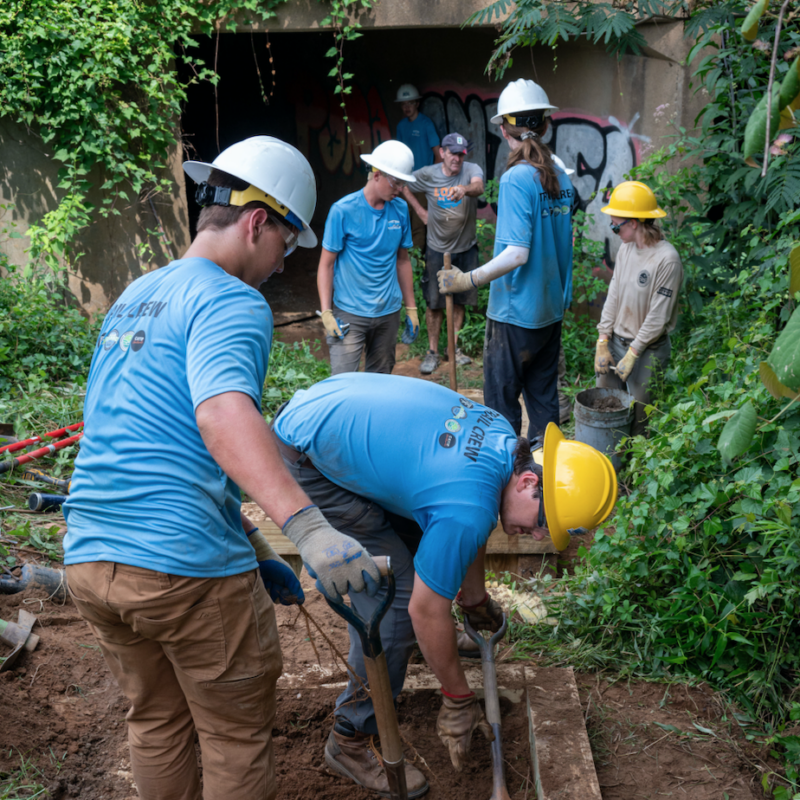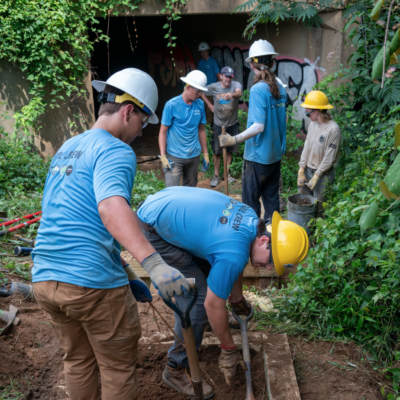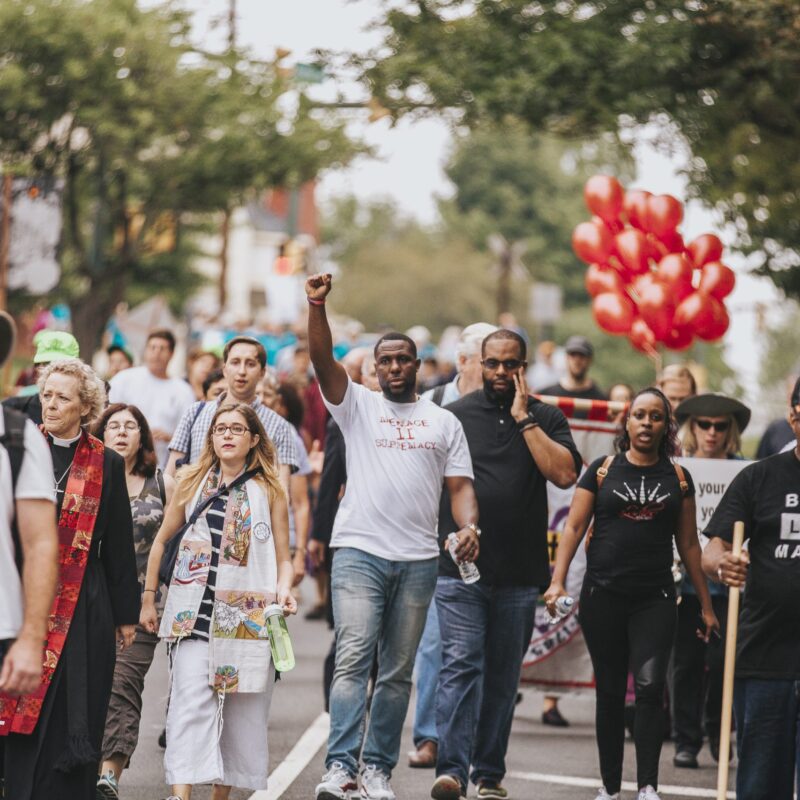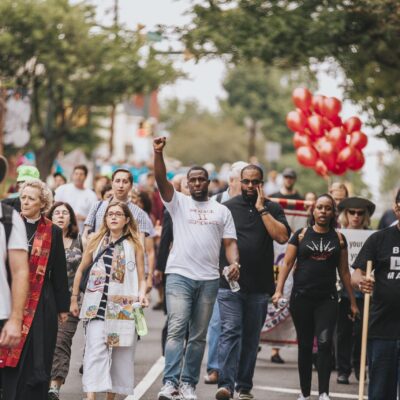Jane Andrews walks into the Albemarle Housing Improvement Program’s (AHIP) conference room and sits down at an already-crowded table. She has good news. James Wilson and his wife, Heidi, sitting to her right, are living in an AHIP-owned house the organization has supplied them for 30 days. She turns to them. “We have that 30 days extended out a little longer,” she says. Heidi’s smile and relief is obvious. James sits slouched down in his chair, wearing Army camouflage and an Iraq veteran ball cap. His response is muted.
 Spc. James Wilson and his wife, Heidi, have battled military and government bureaucracy in their fight for health care after James sustained a head injury in Iraq. That fight has left them in debt and without a home. |
Andrews begins to ask about the Wilsons’ future housing preferences. Do they like living in the city, out in the county? “As long as it’s not on the side of road or standing up in a Humvee,” says Wilson, who was a member of the Army’s Special Forces, “I don’t care.”
Three weeks ago, Debbie and John Taylor contacted AHIP to see if they could rehab a trailer for the Wilsons, who had been homeless before living with them. They had just been offered an old trailer (though the Wilsons still would have had to rent the land), which James had already begun working on. After doing an assessment, AHIP discovered it would take at least $20,000 to make the trailer habitable. “It’s basically an old meth lab,” says James. Andrews thought the money to rehab the 1970s trailer could be used to buy a new trailer.
But days after the initial request, the Taylors called back with an urgent problem. Their landlord had said the Wilsons could no longer stay in their condo. AHIP immediately found the Wilsons the house they’re currently in to avoid James and Heidi becoming homeless again.
“This situation is a little bit challenging because it doesn’t fit the definition for a lot of our resources,” says Andrews. AHIP helps low- to moderate-income folks find or repair housing. But what Andrews wants to do is get the Wilsons into their own house. Going outside of her organization’s parameters will require extra funding. “We want to raise awareness,” says Andrews, “that we might be calling on the community for some help in this situation.”
To call James’s journey from Sadr City in Iraq (where he was injured when a bomb or bombs exploded under his Humvee) to Charlottesville (where he was sent to receive treatment at UVA’s Neuro-Oncology Center) Kafkaesque is both banal and accurate. His fight to get proper treatment that placed Heidi and him in a financially precarious situation has been documented on Salon.com, as was his stay at the now-notorious Walter Reed Army Medical Center.
Initially accused of “malingering,” military speak for faking an injury, James was forced to pay for medical tests himself to prove his injury was real. “You come back wounded and in pain, you expect the military to take care of you,” he says in a deep voice that is still a little slurred and slow because of his injury. “But you have to go and bust down doors. You’re pretty much talking to walls.”
Next week C-VILLE will look at James Wilson’s story in depth, how the Wilsons ended up in Charlottesville, why it is so difficult for wounded Iraq veterans to get the treatment and help they desperately need, and what role local communities have in actually supporting the troops.
C-VILLE welcomes news tips from readers. Send them to news@c-ville.com.





